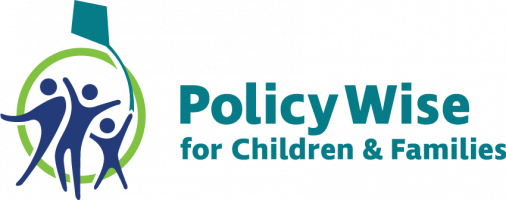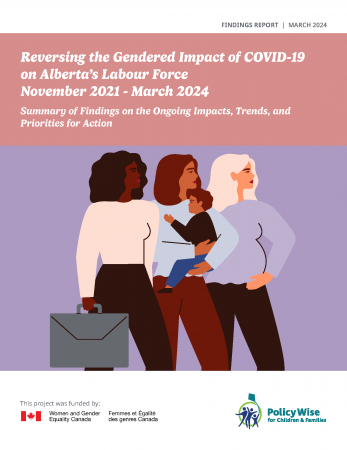After two years of research, PolicyWise has released its Findings Report on how to resolve the employment barriers Alberta women face
Alberta women and gender-diverse individuals demonstrate remarkable resilience and determination to pursue careers that match their skills and aspirations. However, they face many obstacles that hinder their career advancement and economic contribution to Alberta.
The COVID-19 pandemic exacerbated these barriers, particularly in the job market. At the start of the pandemic in early 2020, Alberta was already grappling with over 52,000 job vacancies. By the second quarter of 2022, open positions skyrocketed to over 100,000.
While the number of job vacancies in Alberta has decreased since 2022, it still remains above pre-pandemic levels. According to Statistics Canada, there are currently over 81,000 open positions in the province.
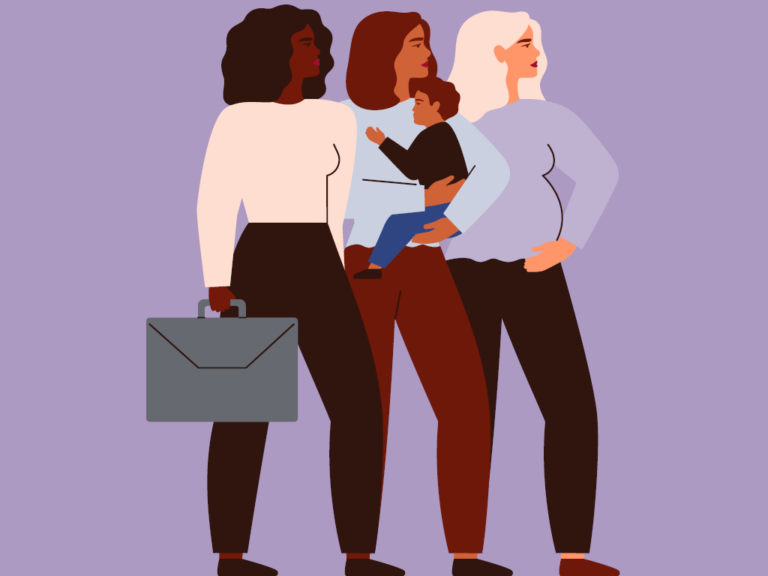
Even with the many available positions, Alberta women continue to bear the brunt of lost wages, face work disruptions, and experience barriers to professional and leadership positions. These persistent challenges women are confronted with in the workforce can be seen in the following statistics:
- 35% of Albertan women are out of the workforce, compared to 26% of men.
- On average, Alberta women earn 80% of what men make working a similar job.
- Alberta women aged 15 to 24 earn 29% less per year than same-aged men.
- Women with children 12 and under lost twice the work hours as men did during the pandemic.
- 79% of women-owned businesses operate without employees, compared to 67% of men’s businesses.
- 34% of managers in Alberta are women.
Identifying priorities to support women in Alberta’s workforce
For the past two years, we at PolicyWise for Children & Families have sought local solutions to reduce the barriers women face and close the gender gap in Alberta employment and entrepreneurship.
With the support of Women and Gender Equality Canada, we conducted comprehensive research to explore the obstacles women experience in participating in the workforce. Our research involved:
- A thorough review of existing programs and policies.
- An in-depth analysis of data from Statistics Canada and other sources.
- Extensive engagement with diverse women and community non-profits across the province.
This multi-faceted approach ensured that our findings are grounded in real-world experiences and reflect the diverse needs and challenges Alberta women face in the workforce.
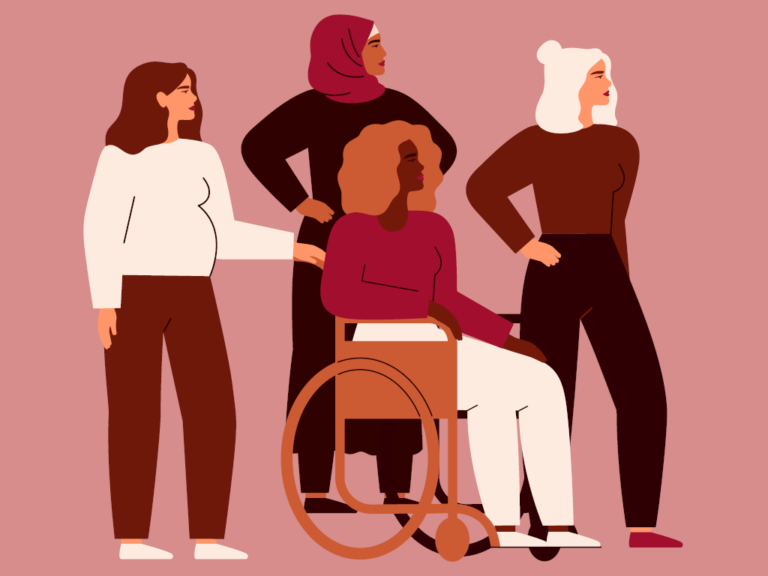

Through this work, we identified five priority areas where action can support women’s participation in the workforce:
- Caregiving
- Entrepreneurship
- Employment Equity
- Newcomer women
- Community non-profit support
Based on our research and these priorities, we organized an event in October 2023, workshopping potential solutions to reduce the barriers for women in the workforce. The event was a resounding success with included panel discussions and breakout sessions. Participants, including community non-profits, government policy specialists, researchers, and finance sector representatives, actively contributed to the discussions and networking opportunities. We recognized the essential role each of them plays in supporting women’s employment and entrepreneurship. Their active participation and contributions were instrumental in shaping our findings.
We shared these priorities with the Government of Alberta, a key player in addressing gender disparities in the workforce. They received our policy primer and brief, which recommended several policy actions that they could take to support women in the workforce.
The critical role of community non-profits
One of the priorities we identified is to strengthen the invaluable role that community non-profit organizations play in supporting women seeking employment or starting their own businesses. These organizations, with their expertise, dedication, and efforts, are instrumental in creating a more inclusive and equitable workforce in Alberta.
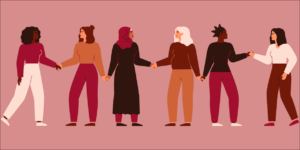 These organizations act as intermediaries with deep knowledge of the experiences and contexts of Alberta women, including how different social locations and identities intersect. This knowledge and the trusted relationships these non-profits build make them critical partners in developing innovative solutions and implementing programs that support women’s employment and entrepreneurship. Their unique value lies in their ability to bridge the gap between policy and practice, ensuring that the needs and experiences of women are at the forefront of any initiatives.
These organizations act as intermediaries with deep knowledge of the experiences and contexts of Alberta women, including how different social locations and identities intersect. This knowledge and the trusted relationships these non-profits build make them critical partners in developing innovative solutions and implementing programs that support women’s employment and entrepreneurship. Their unique value lies in their ability to bridge the gap between policy and practice, ensuring that the needs and experiences of women are at the forefront of any initiatives.
Their on-the-ground knowledge and distinct ability to develop nimble and innovative solutions simultaneously help reduce employment barriers women face, close the employment gender gap, and increase the number of Alberta women in the workforce.
Recognizing the strength and support communities create
Throughout this project, we were fortunate to hear from and build relationships with many experts, advocates, and change-makers. We witnessed the expertise, innovation, and energy within communities of women and the non-profits supporting them. Their visions for transforming the employment environment helped us identify our five priority areas to support women so they can pursue their goals.
As this project comes to a close, we are proud to share our findings report. We hope our findings help reduce women’s persistent employment barriers and improve their circumstances through the strength and support community non-profits create. We invite you to read our findings and help close the gender gap in employment and entrepreneurship in Alberta.
Designing and implementing policies to close Alberta’s employment gender gap need to value the community non-profit sector. This sector’s essential work as intermediaries provides acute situational awareness and relational capital to respond effectively to a crisis like the COVID-19 pandemic.
It is critical for governments to create the conditions for community non-profits to collaborate, connect, and showcase their impact on their terms. As governments develop and enact solutions to close the employment gender gap, they must include the expertise and direct experiences community non-profits can provide.
Community supports can transform the conditions where women can pursue their goals and are valued for their work, competencies, innovative potential, and energy. Rather than focusing on barriers and accommodating needs, what we learned can inspire decision-makers across sectors to invest in the potential and opportunity women bring to the economy and leadership.
Discover other resources developed for this project by visiting its dedicated resource page or its October 2023 event page.
Project sponsors, partners, and contributors
This project was funded by Women and Gender Equality Canada.
The Government of Alberta’s Ministry of Arts, Culture and Status of Women served as a project partner, contributing its expertise to achieving the project’s aims and outputs.
This report is a testament to the power of collaboration and shared learning. The PolicyWise project team extends its heartfelt gratitude to the community non-profits, women with lived experience, and thought leaders who generously shared their insights in focus groups and interviews. We sincerely appreciate the guidance and expertise of our advisory group and the invaluable contributions of our project partners.
